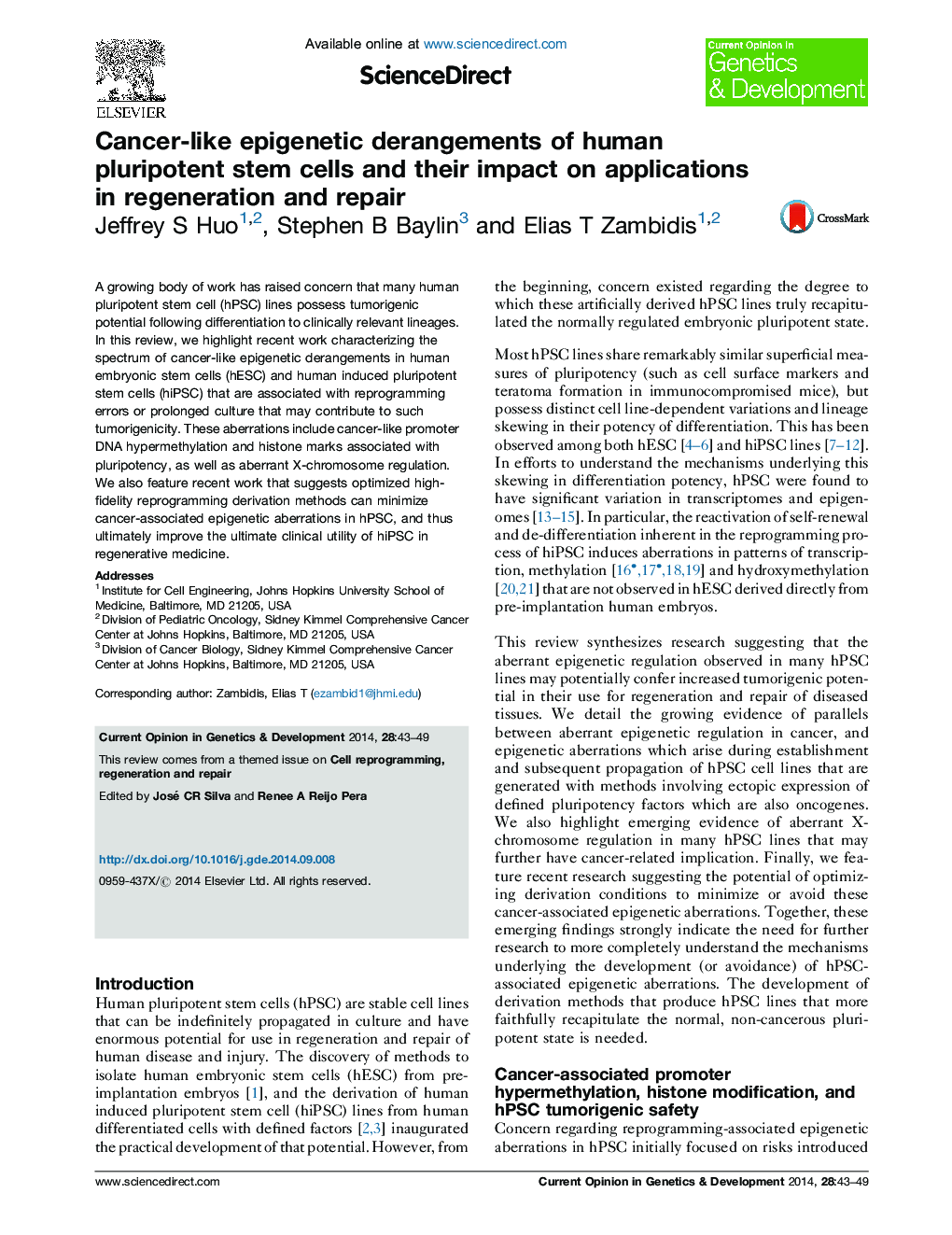| Article ID | Journal | Published Year | Pages | File Type |
|---|---|---|---|---|
| 5893301 | Current Opinion in Genetics & Development | 2014 | 7 Pages |
Abstract
A growing body of work has raised concern that many human pluripotent stem cell (hPSC) lines possess tumorigenic potential following differentiation to clinically relevant lineages. In this review, we highlight recent work characterizing the spectrum of cancer-like epigenetic derangements in human embryonic stem cells (hESC) and human induced pluripotent stem cells (hiPSC) that are associated with reprogramming errors or prolonged culture that may contribute to such tumorigenicity. These aberrations include cancer-like promoter DNA hypermethylation and histone marks associated with pluripotency, as well as aberrant X-chromosome regulation. We also feature recent work that suggests optimized high-fidelity reprogramming derivation methods can minimize cancer-associated epigenetic aberrations in hPSC, and thus ultimately improve the ultimate clinical utility of hiPSC in regenerative medicine.
Related Topics
Life Sciences
Biochemistry, Genetics and Molecular Biology
Developmental Biology
Authors
Jeffrey S Huo, Stephen B Baylin, Elias T Zambidis,
